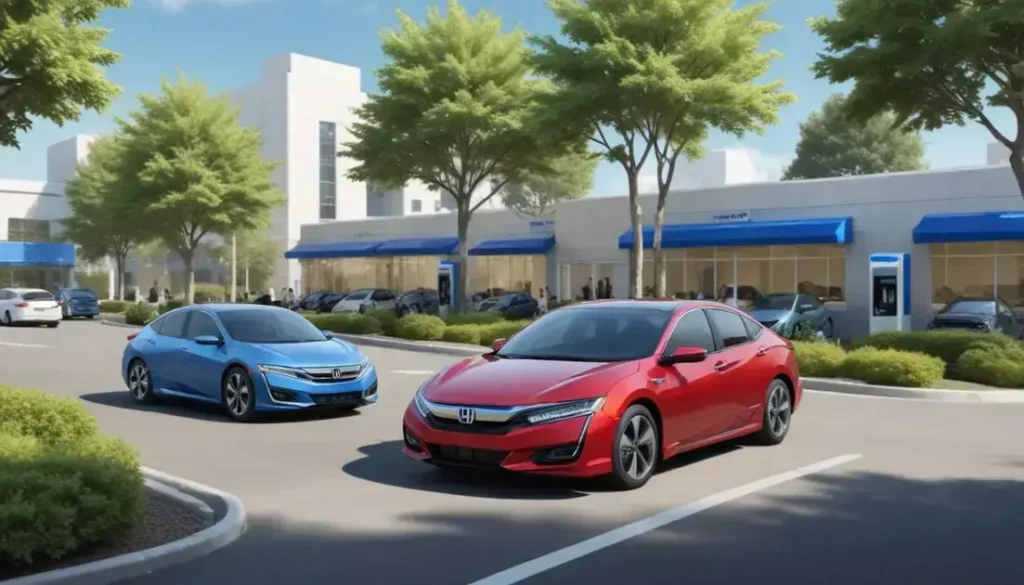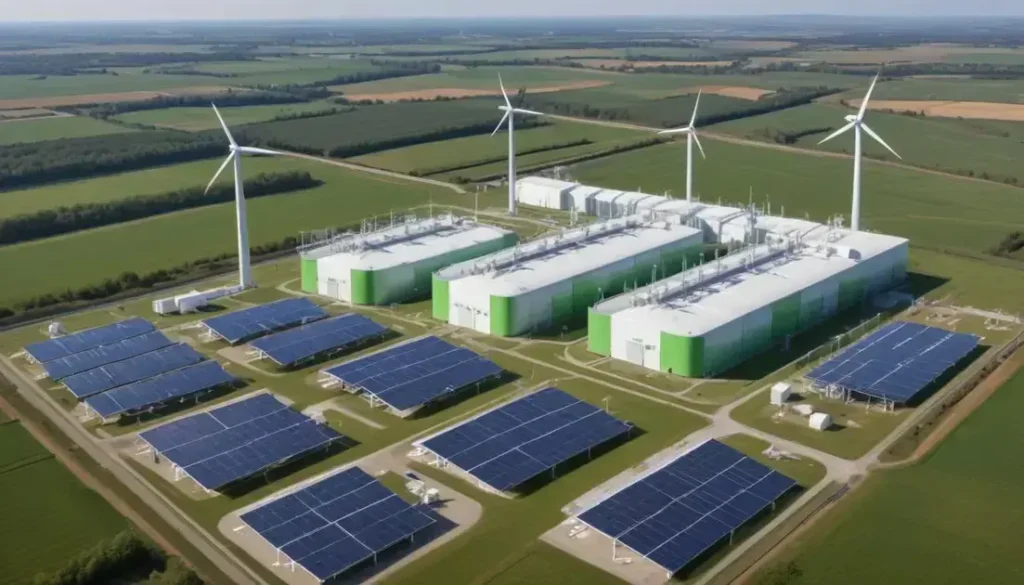Electrification in the fleet sector significantly reduces operational costs and emissions, while enhancing sustainability through electric trucks, especially as governments implement stricter regulations and provide incentives for greener transportation solutions.
Electrification is revolutionising the heavy-duty vehicle sector, offering businesses an opportunity to enhance their sustainability strategies. But how is this trend affecting companies in India?
Overview of Fleet Electrification
A widespread shift towards electrification in the fleet sector is revolutionising how goods are transported worldwide. Fleet electrification involves the transition from traditional fuel-powered vehicles to electric ones, which directly impacts emissions and operational costs. By reducing reliance on fossil fuels, companies not only lower their carbon footprint but also enhance sustainability.
One of the key drivers of fleet electrification is the increasing availability of advanced electric vehicles (EVs). These vehicles are designed to meet the rigorous demands of logistics while providing substantial savings on fuel. Businesses are now exploring electric trucks and vans suitable for various applications, including last-mile delivery and long-haul transport.
Moreover, governments are incentivising this transition through subsidies and favourable policies. Many regions have implemented regulations that promote the adoption of electric fleets, creating a supportive environment for businesses to invest in electric vehicle infrastructure.
However, challenges such as charging infrastructure and upfront costs remain. Companies must invest strategically to overcome these barriers and adopt best practices for integrating electric vehicles into their existing fleets. The future of transportation lies in electrification, providing an opportunity for businesses to be at the forefront of this transformation.
Key Trends in Heavy Duty EVs
The adoption of heavy-duty electric vehicles (EVs) is accelerating due to several key trends reshaping the transport landscape. One prominent trend is the significant advancements in battery technology. New batteries offer improved range and faster charging times, making electric trucks more feasible for long-haul operations.
Another important aspect is the growing environmental awareness among consumers and businesses. Companies are increasingly targeting sustainability goals, leading to a surge in the demand for electric fleets. This shift not only reduces emissions but also aligns businesses with eco-friendly practices.
Additionally, government regulations play a critical role in driving the heavy-duty EV market. Many nations are setting ambitious targets for reducing carbon emissions, incentivising the switch to electric vehicles. This regulatory framework encourages businesses to invest in electric technologies and infrastructure.
Furthermore, collaborations between automotive manufacturers and tech companies are paving the way for innovative solutions. These partnerships focus on developing smart technologies such as fleet management software and autonomous driving capabilities, enhancing the efficiency and effectiveness of heavy-duty EVs.
Impact on Indian Exporters
The impact of electrification on Indian exporters is significant and multifaceted. As global markets shift towards sustainability, Indian businesses that export goods are forced to adapt to new environmental standards. This shift often means investing in electric vehicles and sustainable practices to meet international regulations and consumer expectations.
Many exporters are finding that incorporating electric fleets not only helps reduce their carbon emissions but also positions them favourably in the eyes of environmentally-conscious clients. By transitioning to electric logistics, these companies can enhance their brand image and attract more business opportunities.
Moreover, Indian exporters benefit from governmental incentives aimed at promoting electric vehicle adoption. These incentives can alleviate the initial costs associated with purchasing electric trucks, making the transition less burdensome and more attainable. Collaborations between exporters and local ESCOs (Energy Service Companies) further expedite this transition.
Additionally, as more countries impose tariffs and regulations favoring greener alternatives, Indian exporters who embrace electrification can avoid penalties and maintain competitive advantages. The early adoption of electrification not only aligns businesses with global trends but also prepares them for a future where sustainability is paramount.
Cost Comparison: Diesel vs Electric Trucks
The cost comparison between diesel and electric trucks reveals significant insights for businesses considering fleet transformation. Initially, electric trucks may appear costly due to higher purchase prices compared to their diesel counterparts. However, this perception changes when considering the long-term savings associated with electric vehicles.
Fuel costs represent a major component of total operational expenses. Electric trucks offer substantial savings, as electricity is generally cheaper than diesel. Additionally, the maintenance costs for electric vehicles tend to be lower, thanks to fewer moving parts and reduced wear and tear.
Moreover, government incentives and subsidies play a crucial role in lowering the effective cost of electric trucks. These financial aids can offset initial investments, making the transition more manageable for businesses.
Depreciation is also an essential factor in this comparison. As electric vehicle technology advances and becomes more prevalent, electric trucks are expected to have better resale values, further enhancing their economic appeal.
While the upfront costs of electric trucks may be higher, businesses should evaluate the overall financial picture, which includes savings on fuel, maintenance, and potential future resale value. In the long run, electric trucks may prove to be not only environmentally sustainable but also economically advantageous.
Role of Technology in Transition
The role of technology in the transition to electric vehicles (EVs) is pivotal for the fleet industry. Advances in battery technology have dramatically improved the performance and efficiency of electric trucks. New batteries provide longer ranges and faster charging capabilities, making them more viable for logistics and transportation needs.
Additionally, smart technologies such as fleet management systems are enhancing operational efficiency. These systems allow businesses to monitor vehicle performance, optimise routes, and track energy consumption in real time. Such insights enable companies to reduce costs and improve environmental sustainability.
Moreover, the integration of renewable energy sources in EV charging infrastructure is transforming the energy landscape. Solar and wind energy are increasingly being utilised to power charging stations, contributing to a greener supply chain. This shift not only lowers operational costs but also aligns with sustainability goals.
Furthermore, the development of autonomous driving technology is set to revolutionise fleet operations. This innovation promises to further reduce human error, enhance safety on roads, and increase the efficiency of deliveries. The synergy between electrification and technology is critical, driving a successful transition in the transport sector.
Challenges for Fleet Operators
Fleet operators face several challenges as they transition to electric vehicles (EVs). One of the primary hurdles is the initial investment. Electric trucks generally have a higher purchase price than traditional diesel vehicles, which may discourage companies from making the switch. Although operational savings can offset these costs over time, the upfront financial burden remains a concern.
Another significant challenge is the charging infrastructure. While the number of charging stations is growing, many regions still lack adequate facilities for long-haul electric trucks. This gap can lead to range anxiety and operational inefficiencies. Fleet operators must carefully plan their routes to include accessible charging options, which can complicate logistics.
Moreover, training personnel to operate and maintain electric trucks is crucial. Engineers and drivers need to understand the specific technology behind EVs, including battery management systems and charging protocols. This training requires time and resources that some companies may find difficult to allocate.
Lastly, regulatory uncertainties surrounding EVs can impact decision-making. Changes in government policies and incentives may affect the financial viability of electric fleets, making it essential for operators to stay informed and adaptable. Overcoming these challenges is vital for fleet operators aiming to embrace sustainable transport solutions.
Future Market Projections
The future market projections for electric vehicles (EVs) in the logistics and transportation sectors indicate a substantial growth trajectory. Experts predict that by 2030, electric trucks will comprise a significant portion of the overall fleet, driven by technological advancements and increasing regulatory support.
One major factor contributing to this growth is the continuous improvement in battery technologies. These advancements are enhancing vehicle range and reducing charging times, addressing two of the biggest concerns for fleet operators. As more companies adopt electric trucks, economies of scale will drive costs down, making EVs more accessible to a wider range of businesses.
Government policies also play a crucial role in shaping market conditions. Many countries are implementing stricter emissions regulations and offering incentives for companies to transition to greener fleets. This supportive environment is expected to accelerate the shift towards electric vehicles, as companies seek to comply with sustainability goals.
Market forecasts suggest that the demand for electric heavy-duty trucks will also increase due to rising fuel prices and growing consumer preference for sustainable practices. By focusing on innovation and adapting to changing regulations, businesses can position themselves advantageously within the evolving market landscape.
Sustainability Goals and Regulations
Sustainability goals and regulations are shaping the future of the transportation sector, particularly in the adoption of electric vehicles (EVs). Governments worldwide are implementing stringent emission regulations aimed at reducing greenhouse gases and promoting cleaner air. These regulations encourage fleet operators to transition to electric trucks to comply with environmental standards.
Many nations set ambitious targets for achieving net-zero emissions by 2050. As a result, fleets are increasingly integrating sustainability goals into their core strategies. Companies that align their operations with these goals not only comply with regulations but also enhance their brand reputation and appeal to environmentally conscious consumers.
Incentives, such as tax breaks and grants for EV purchases, further support the transition. Many governments provide financial assistance to businesses that invest in electric fleets. This makes electric trucks more economically viable and drives widespread adoption.
Moreover, corporations are voluntarily setting their own sustainability targets, aiming for carbon neutrality and increased use of renewables within their logistics. These goals promote investments in green technologies, which can lead to significant long-term cost savings, while also fostering a culture of sustainability.
In Summary: The Future of Electric Fleets
The shift towards electric vehicles (EVs) is crucial for sustainability in the transportation industry. By adopting electric trucks, companies can reduce their carbon footprint and align with global regulations aimed at protecting the environment.
Challenges such as initial costs and charging infrastructure exist, but advancements in technology and supportive government policies can help overcome these barriers. Investing in electric fleets not only contributes to environmental goals but also leads to long-term savings.
As regulations get stricter and more companies commit to sustainability, it is clear that the transition to electric vehicles is not just beneficial but necessary. Embracing this change allows businesses to remain competitive and play a significant role in creating a cleaner, greener future.
In essence, the future of logistics lies in electrification, and now is the time for fleet operators to adapt and thrive.
Frequently Asked Questions
What are the main benefits of adopting electric trucks for my fleet?
Electric trucks help reduce operational costs, lower emissions, and improve corporate sustainability, making them a wise choice for forward-thinking companies.
How can I overcome the initial cost of electric trucks?
Many governments offer incentives such as tax breaks and grants that can help offset the initial investment in electric vehicles.
What steps can I take to prepare my fleet for electrification?
Start by assessing your current fleet and routes, then explore available charging infrastructure and consider investing in EV training for your staff.
Are electric trucks suitable for long-haul transport?
Yes, advances in battery technology are continuously improving the range and efficiency of electric trucks, making them increasingly viable for long-haul operations.
How do electric trucks impact the environment compared to diesel trucks?
Electric trucks produce zero tailpipe emissions, significantly reducing air pollution and greenhouse gas emissions compared to diesel vehicles.
What is the future outlook for electric vehicles in logistics?
The market for electric vehicles in logistics is expected to grow significantly as technology advances and regulations become stricter, making them essential for sustainable transport.


